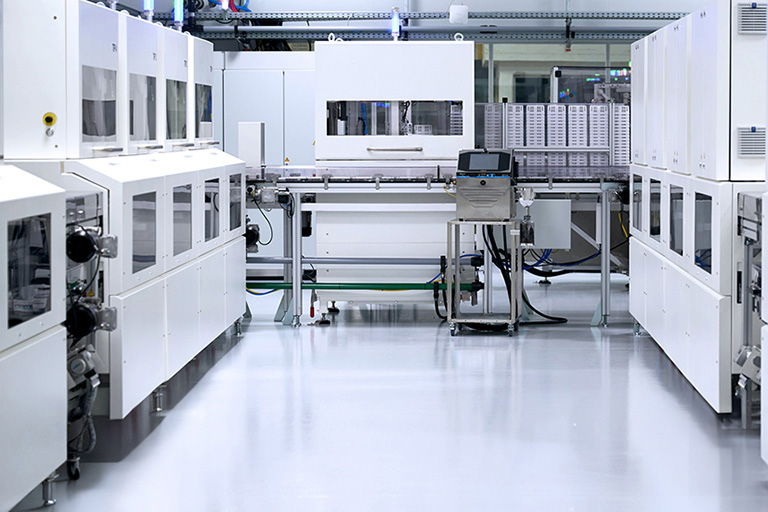Choosing the Right Medical Contract Manufacturer

When it comes to the production of medical devices and components, selecting the right contract manufacturer is a decision that can significantly impact the success of your product. The process involves careful consideration of various factors to ensure the manufacturer is able to meet the stringent requirements of the medical industry. Here is a detailed guide to help you make an informed decision:
Understand Your Needs and Determine the Medical Contract Manufacturer’s Capabilities
Experience in medical technology
Find a manufacturer with a proven track record in medical technology. They should have experience with prototype components, test phases, and cycles, and be familiar with the production volumes your project requires. Additionally, engineering expertise and project management capabilities should be considered – including knowledge of PFMEA, DFM, FEA, and Process Development utilizing SIM (Scientific Molding Procedures).
Quality and compliance
Confirm that the medical contract manufacturer is certified according to ISO 13485 and complies with FDA and cGMP guidelines. They should have a comprehensive quality management system in place, including risk management and an integrated CAPA and change control system. Beyond established systems, determine whether the manufacturer applies real-time process monitoring and Industry 4.0 solutions to secure quality throughout the lifecycle.
Evaluate the Medical Contract Manufacturer’s Resources
Supplier network
A strong global purchasing network indicates the manufacturer’s ability to procure high-quality materials and components. They should have established relationships with key suppliers in areas such as special machines, capital equipment, automation, vision systems, and conveyors. This also includes tool builders with application-specific experience, as well as suppliers for tools, laboratories and clean rooms, granules, sterilizations, and other components.
Production capabilities
Assess whether the medical contract manufacturer has the necessary production facilities, such as continuous particle monitoring in cleanroom classes up to ISO class 5, microbiological monitoring, and RNase/DNase-free, pyrogen-free production capabilities. Look for end-to-end scalable solutions that can be maintained across the entire product life cycle.
Assess Flexibility and Cooperation
Supplier involvement
A manufacturer that involves suppliers early in the production and business processes is likely to have a better exchange of know-how and expertise, to generate optimal product realization. This also extends to continuous improvement practices – including Lean principles, Kaizen initiatives, and Six Sigma approaches – fostering a culture of efficiency and innovation.
Customer base
Consider whether the medical contract manufacturer typically works with large stakeholders with greater quantities and volumes, or if they also cater to smaller startups in medical technology. This can provide insight into their flexibility and understanding of different customer needs.
Financial and Operational Stability
Price competitiveness
While not the only factor, price is a significant consideration. The manufacturer should be able to offer competitive market prices without compromising on quality.
Long-term partnerships
Look for a manufacturer that focuses on fostering partnerships and is seeking stable and long-term business relationships.
Technical Expertise and Innovation
Biomedical expertise
A manufacturer that employs biologists or has biomedical expertise can provide a deeper understanding of your products and their value, not just the manufacturing process.
Innovation and design
The ability to propose new designs and think ahead in terms of assembly and technologies, like microstructures and microfluidics, can be a strong differentiator.
Service and Support from the Medical Contract Manufacturer
Integrated automation solutions and continuous improvement frameworks further enhance service reliability.
Efficiency and reliability
The manufacturer should have a reputation for efficient and reliable services. They should be able to demonstrate process monitoring via systems like 100% vision and SPC systems, and offer services such as UDI labelling. Integrated automation solutions and continuous improvement frameworks further enhance service reliability and help secure consistent quality over time.
Key Takeaways
Choosing a medical contract manufacturer is a complex process that requires a thorough evaluation of many factors. By considering the manufacturer’s experience, quality and compliance, resources, flexibility, financial stability, technical expertise, and service quality, you can select a partner that will contribute to the success of your medical products. Continuous improvement and scalable solutions should be viewed as ongoing commitments, ensuring competitiveness and compliance throughout the entire product lifecycle.
What You Can Expect from Partnering with Weidmann Medical
Choosing Weidmann Medical as your medical contract manufacturing partner means gaining more than just production capacity – you gain a team that understands your goals. Our experience in medical technology helps you navigate regulatory requirements, accelerate time-to-market timelines, and ensure consistent product quality. You benefit from flexible solutions, reliable delivery, and transparent communication throughout the process.
Whether you’re a startup with a new idea or an established company with complex needs, we support you where it matters most – let us help you turn your vision into a successful, compliant product. With a strong foundation in Lean, Kaizen, and Six Sigma, paired with advanced automation and real-time process monitoring, Weidmann Medical is committed to continuous improvement and end-to-end lifecycle support.


